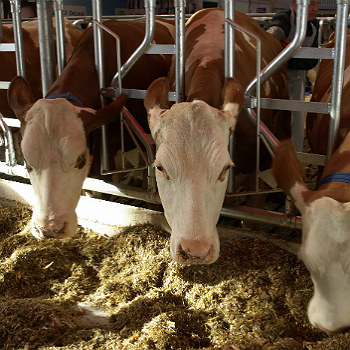Oakhurst Dairy has offered $5 million in back wages to settle an overtime lawsuit, the Portland Press Herald reports. In 2014, five of the Maine dairy company’s delivery drivers accused their employer of misreading the State’s wage and hour laws and incorrectly making them exempt from premium pay.
$5M Overtime Fund Ends Comma Dispute
The entire case, writes the New York Times, hinged on the absence of an Oxford comma in Maine state law.
Maine’s law on wages says that most employees in the State are entitled to overtime pay after working 40 hours in a given week, but there are several explicit exemptions, including one for workers who specialize in “the canning, processing, preserving, freezing, drying, marketing, storing, packing for shipment or distribution of:
- Agricultural produce;
- Meat and fish products; and
- Perishable foods.”
Notice the “or” at the end of the last sentence. It’s not preceded by a comma. In drafting the legislation, Maine’s lawmakers neglected to include an Oxford (or “serial”) comma, which grammar purists claim should come before the last item in every list. And that oversight led to variation in possible interpretations.
Vagaries Of Overtime Law Spark Legal Action
Is the exemption intended to cover workers, like Oakhurst Dairy’s drivers, who engage in the distribution of produce, or only workers who engage in “packaging for” the distribution of produce. Is distribution an exemption on its own, or just an element of the exemption for those who package perishable foods?
A simple comma would have cleared the problem up straight-away. Write out “packing for shipment, or distribution of” and it becomes obvious that Maine’s legislature had intended for delivery drivers to be included in the exemption, too, alongside packers, marketers and canners. The lack of a comma, though, was enough for five of Oakhurst’s delivery drivers to sue, under Maine State law, and accuse their employer of withholding earned overtime pay.
Appeals Court Rules In Favor Of Delivery Drivers
As the drivers told the story, Oakhurst had incorrectly classified them exempt from overtime wages, based on a misreading of Maine’s law. Oakhurst countered, arguing that, comma or not, the law should be interpreted to include workers who distribute perishable foods in the exemption.
And, while a lower court ruled in favor of the dairy company, an appeals court, which issued an opinion in the case in March 2017, took the drivers’ side of the argument.
“For want of a comma, we have this case,” Judge David J. Barron for the US First Circuit Court of Appeals. “The exemption’s scope is […] not so clear,” Judge Barron said, and due to that ambiguity, “the state’s wage and hour laws must be construed liberally.”
Court: Ambiguity Compels Liberal Overtime Rights
Without an Oxford comma to separate “shipment” from “or distribution,” it’s impossible to know, solely from the law’s text, what the Maine legislature wanted to exempt from the state’s overtime protections. The Appeals Court, then, as Judge Barron writes, was forced to narrow the law’s impact.
As it stood, the Appeals Court had two ways of interpreting the law. One interpretation would entitle fewer workers in Maine to overtime; that was Oakhurst’s reading of the wage and hour law. The second reading, proposed by the delivery drivers, would have granted a greater number of workers overtime rights, since it would exclude distributors from the exemption. And due to prior court opinions, Judge Barron said, the Appeals Court in this case was bound to take the more liberal approach.
It was obligated, in the light of the law’s vagueness, to extend overtime rights to the greatest number of people. In practice, that meant the Appeals Court reversed the lower’s court decision (which had granted partial summary judgment to Oakhurst). The case was sent back to the lower court for further proceedings.
Settlement Fund Will Compensate 120+ Drivers
It took less than a year for Oakurst to settle the lawsuit and put the dispute to bed. On February 8, 2018, the dairy company announced the creation of a $5 million settlement fund. The five drivers who initiated the suit (referred to as “named plaintiffs”) will each receive $50,000 in compensation from the fund.
Another 120 or so delivery drivers are expected to be eligible for an award. After filing individual claims against the fund, each of these additional workers will receive a minimum of $100 in back wages, or the actual amount of overtime pay they are owed for documented work performed between May 2008 and August 2012. Oakhurst Dairy, which was sold to a farmer’s co-op, Dairy Farmers of America, in 2014, has not admitted any liability or wrongdoing in the case.
